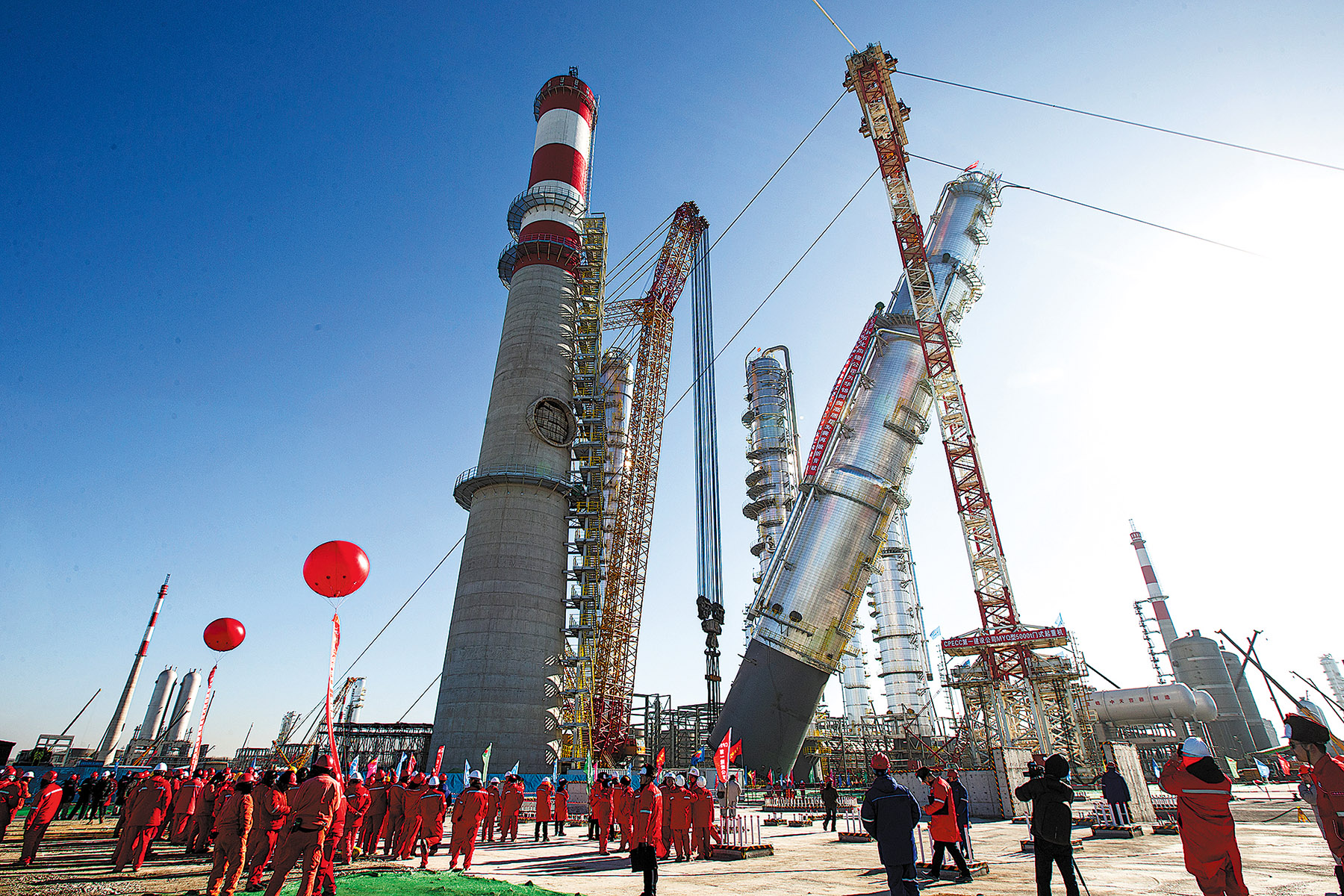Action plan, new industry catalog to expand access for overseas investors

China encourages foreign businesses to expand investment in fields such as advanced manufacturing, modern services, high-tech industries and energy conservation, further advancing the nation’s economic openness and innovation-driven growth, government officials said on Feb 20.
Speaking at a news conference in Beijing, they said that China will soon introduce the 2025 edition of its industry catalog encouraging foreign investment. The new catalog will further expand market access for foreign investors in key industrial sectors.
Their remarks came after the State Council, China’s Cabinet, on Feb 19 issued an action plan aimed at stabilizing foreign investment this year.
As part of the plan, China will lift restrictions on domestic loans for foreign-invested businesses, allowing the firms to use domestic financing for equity investments. It will also support pilot regions in effectively implementing opening-up policies related to areas such as telecommunications, biotechnology and wholly foreign-owned hospitals, offering comprehensive services to facilitate foreign-invested projects in these sectors.
Hua Zhong, head of the department of foreign capital and overseas investment at the National Development and Reform Commission, said the new catalog will reflect China’s economic growth trends and industrial advancements.
Wang Xiaohong, a researcher at the China Center for International Economic Exchanges in Beijing, said the new catalog is expected to further bring capital into emerging industries, reinforcing China’s position as a global hub for high-tech and green development.
Yao Jun, director of the department of planning at the Ministry of Industry and Information Technology, said the government will actively support entrepreneurs and investors from all countries in innovating and starting businesses in China, encouraging foreign companies to establish research and development centers and collaborate with domestic enterprises.
China will promote foreign participation in digital development, green transition and smart manufacturing, as well as facilitate localization of advanced technologies and solutions, Yao added.
Foreign-invested businesses play a significant role in China’s economy, contributing one-seventh of tax revenue, about one-third of foreign trade and half of electromechanical and high-tech product exports, as well as creating nearly 7 percent of employment opportunities, according to data from the Ministry of Commerce.
To date, foreign investment in China spans 20 industrial categories and 115 major sectors. In the manufacturing sector alone, foreign capital is present in 31 major categories and 548 subcategories.
To further enhance national treatment for foreign-invested enterprises, Ling Ji, vice-minister of commerce and deputy China international trade representative, said the country is actively revising the Government Procurement Law and exploring specific standards for “domestic production” by foreign companies in this area.
Noting that the United States’ tariff hikes disrupt normal China-US economic and trade cooperation and fail to address the US’ own challenges, Zhu Bing, director of the Commerce Ministry’s department of foreign investment administration, said such measures not only harm foreign-invested enterprises in China, including US companies, but also erode multinational corporations’ investment confidence and decision-making abilities.
“While some foreign, labor-intensive businesses are adjusting their global footprint and reallocating production capacity based on their strategic priorities and comparative advantages, many multinational corporations are evolving their investment strategies to stay competitive in China,” Zhu said.
Several foreign companies have expanded production lines for high-tech products, including high-end displays and new energy batteries, signaling a shift toward advanced manufacturing. Others have increased investment in their research and development centers in China, further upgrading their innovation capabilities.
For example, Panasonic Holdings Corp of Japan will start construction in July a factory in Shanghai to produce semiconductor packaging materials, with an investment of 120 million yuan ($16.5 million).
“China’s well-developed supply chain, supportive policies, abundant R&D talent, continuously advancing innovation ecosystem and vast market potential make it an attractive destination for multinational companies,” said Tetsuro Homma, executive vice-president of Panasonic.
Data from the Ministry of Industry and Information Technology shows that China saw actual use of foreign investment in the manufacturing sector exceed 220 billion yuan in 2024, after authorities removed all market access restrictions for foreign investors in the sector last year.



